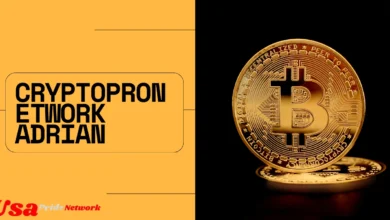]In today’s fast-paced world, unexpected expenses can arise, leaving individuals seeking quick financial solutions. One such option is the payday loan, a form of short-term lending designed to provide immediate cash flow until the borrower’s next paycheck. Understanding how payday loans work is crucial for anyone considering this borrowing method.
What Are Payday Loans?
Payday loans are short-term, high-interest loans typically due on the borrower’s next payday. They are designed to cover immediate financial needs and are usually for small amounts, often less than $500. These loans are accessible to individuals with varying credit histories, making them a popular choice for those facing financial emergencies.
How Do Payday Loans Work?
To obtain a payday loan, borrowers provide proof of income, identification, and a bank account. The lender then offers a loan amount based on the borrower’s income, requiring repayment by the next payday, usually within two to four weeks. Repayment is typically made in a single lump sum, including the principal and any associated fees.
For example, a borrower might write a postdated check for the loan amount plus fees, which the lender holds until the due date. Alternatively, borrowers may authorize the lender to electronically withdraw the funds from their bank account on the agreed-upon date.
READ MORE : https://theeloanwarehouse.com/
Interest Rates and Fees
Payday loans come with notoriously high-interest rates. Lenders often charge a fixed fee per $100 borrowed, which can translate into annual percentage rates (APRs) exceeding 400%. For instance, a $15 fee for every $100 borrowed equates to an APR of approximately 391%. These high costs can make payday loans an expensive form of credit.
Pros and Cons of Payday Loans
Pros:
- Quick Access to Funds: Payday loans provide immediate cash, often within the same day.
- Minimal Requirements: Borrowers typically need only proof of income, identification, and a bank account.
- No Credit Check: Lenders usually do not perform credit checks, making loans accessible to those with poor credit.
Cons:
- High-Interest Rates: The cost of borrowing can be exorbitant, leading to financial strain.
- Short Repayment Period: The requirement to repay the loan in full by the next payday can be challenging.
- Debt Cycle Risk: Borrowers may find themselves taking out additional loans to cover previous ones, leading to a cycle of debt.
Alternatives to Payday Loans
Before opting for a payday loan, consider these alternatives:
- Personal Loans: Offered by banks and credit unions with longer repayment terms and lower interest rates.
- Credit Card Cash Advances: While still costly, they often have lower interest rates compared to payday loans.
- Borrowing from Friends or Family: This can provide interest-free assistance without the formalities of a loan.
- Local Assistance Programs: Non-profit organizations and community programs may offer financial aid or low-interest loans.
Conclusion
Understanding how payday loans work is essential for making informed financial decisions. While they offer quick access to funds, the high costs and short repayment terms can lead to further financial challenges. Exploring alternative borrowing options and carefully considering the implications can help individuals manage their finances more effectively. Just as platforms like kbjav.net: Premier Source for Korean Webcam Videos cater to specific content needs, choosing the right financial solution tailored to one’s situation is crucial for long-term stability.




